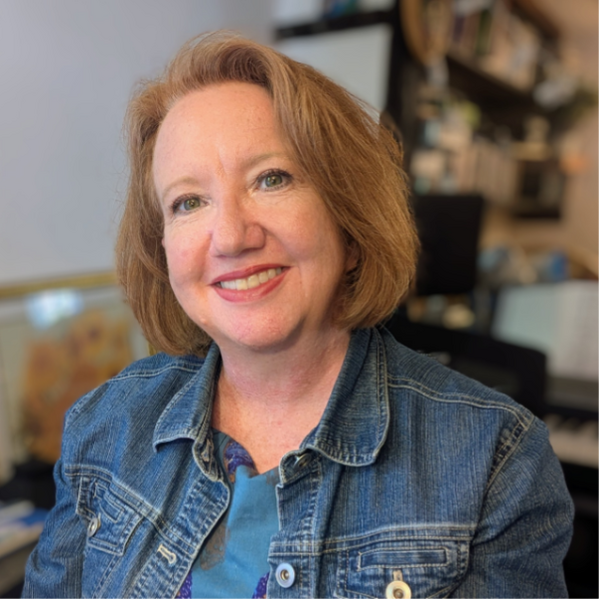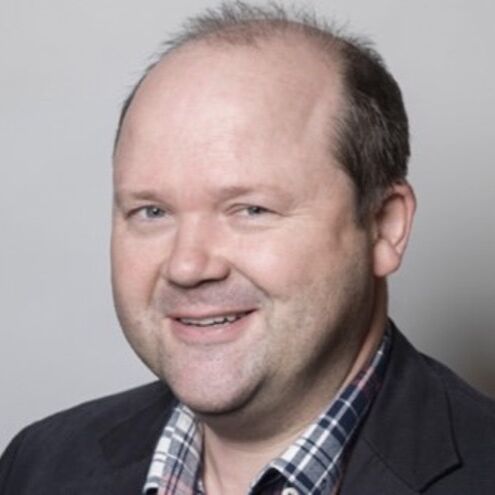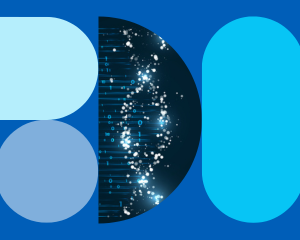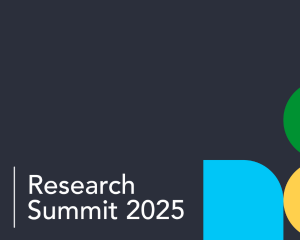
What is the value of the National Genomic Research Library for those with neurological conditions?
What is the value of the National Genomic Research Library for those with neurological conditions?
Rare conditions affect more then 350 million people worldwide. Almost half of these conditions are neurological, and 90% of rare childhood conditions have major neurological effects. While these conditions are often difficult to diagnose and treat, whole genome sequencing is increasingly revealing the underlying genetic cause in a significant number of cases.
Cerebral palsy is the biggest cause of childhood disability globally but has historically been associated with problems at or around birth. However, recent studies are revealing significant genetic causes in some people with cerebral palsy. Accordingly, large genomic datasets of people with neurological disorders, such as those in the National Genomic Research Library, are essential for researchers and clinicians to study such conditions, identify new genes that may be responsible for the conditions and ultimately develop therapies.
Join us at 4pm to 5pm on Thursday 10 October for a webinar that discusses some of the latest insights into cerebral palsy genomics and how genomics is being used to resolve complex neurological conditions to give more people a genetic diagnosis. We will be discussing the importance of engaging with families to understand their concerns around genetic testing. We will also be talking with the parent of a child with cerebral palsy who has had a genetic diagnosis and what this has meant for them, and the advocacy work they do. Through this webinar, we hope to raise awareness of the power of genomics and the hope that whole genome sequencing can provide for people and families who are still without a genetic diagnosis and what the future might hold.
Chair
Vivienne Parry
Vivienne Parry is a writer and broadcaster. A scientist by training, Vivienne hosts medical programmes for BBC Radio 4, writes widely on health, presents films, facilitates many high level conferences and trains young researchers. She has a part time role as Head of Engagement at Genomics England which delivered the 100,000 Genomes Project.
Speaker biographies
Alexandra Gaudlap
Alexandra Gaudlap is the Founder of the Raging Raymond Foundation, an international advocacy organisation based out of New Jersey. After concerns of developmental delays, Alex's son, Raymond, received a diagnosis of cerebral palsy at the age of 2. Still not confident in this diagnosis, Alex continued the search for answers and had a genetic panel done on Raymond that came back normal. In 2020, at the age of 4, Raymond received a diagnosis of a variant on the VAMP2 gene, after a reanalysis of the original genetic panel. He was one of 11 patients in the world. In August 2022, Alex published www.vamp2.org intending to work toward a treatment and/or a cure to bring families and researchers together. She was extremely successful and brought research into this syndrome in less than a year. Even on her hardest days, conversations with families, researchers, and physicians bring a smile to her face and she always wants to do more. In Alex’s free time, you can find her spending time with her three children, family and two dogs at home or the Jersey Shore.
Dr Ana Basu
Dr Anna Basu is a clinical senior lecturer at Newcastle University and honorary consultant child neurologist at the Great North Children’s Hospital, Newcastle upon Tyne, UK. Following her PHD she undertook an NIHR Clinical Trials Fellowship and then an NIHR Career Development Fellowship around early intervention in perinatal stroke, a common cause of unilateral cerebral palsy. Her research has focussed on assessments and interventions for the upper limb in cerebral palsy and more recently has also extended to understanding the experience of parents of children with neurodisability and finding ways to deliver more holistic support. Dr Basu is a Fellow of the Royal College of Paediatrics and Child Health (FRCPCH) and the Higher Education Academy (FHEA).
Professor David Rowitch
Professor David Rowitch MD PhD ScD FMedSci FRS is a developmental neuroscientist and Head of Department of Paediatrics at the University of Cambridge. Originally from California, he obtained his MD from UCLA and PhD from the University of Cambridge. His laboratory in the Wellcome-MRC Cambridge Stem Cell Institute investigates genetic factors that determine diversity of glia, which comprise 90% of cells in the human brain. He has applied a developmental neuroscience perspective to better understand white matter injury in premature infants and in multiple sclerosis, and he uses genomic technologies to better diagnose and treat serious neurogenetic disorders in children. Professor Rowitch was awarded Doctor of Science (ScD), the highest degree of the University of Cambridge for distinguished research in science, in 2016. He was appointed to the National Advisory Council for Child Health and Development (USA) in 2020, elected a Fellow of the Academy of Medical Sciences in 2018 and Fellow of the Royal Society in 2021.
Dr Heather Pierce
Dr Heather Pierce is a Research Genetic Counsellor for the NeuralNET Study in the Department of Paediatrics at the University of Cambridge Clinical School in the UK. She is a US-trained and UK Board-Registered Genetic Counsellor with 25 years of experience across clinical, research and laboratory settings, and she has a particular interest in neurogenetics and in facilitating underserved populations' access to genetic services and research studies. She also sits on the Governance Council for the International Cerebral Palsy Genomics Consortium.
Professor Henry Houlden
We run a clinical neurogenetics, diagnostic and research laboratory. We have a particular interest in cerebral palsy, complex inherited disorders in childhood and adult onset and rare movement disorders such as multiple system atrophy (MSA); particularly in diverse populations. We integrate new gene discovery identifying disease genes such as CANVAS/RFC1, FGF14, VWA1, SCA11, SCA15, GRIA2 and GAD1, along with modifiers of disease in repeat expansion disorders, with functional experimental validation in human tissue and other model systems. This allows us to diagnose many families to allow effective management and treatment. We have an international lab and clinical team, with students and young clinicians who come for exchange visits to UCL allowing joint research projects and publications. We are keen to collaborate to investigate families with neurological disorders.
Speakers

Vivienne Parry
Head of Public Engagement
Genomics England

Alexandra Gaudlap
Founder
Raging Raymond Foundation

Dr Anna Basu
Clinical Senior Lecturer
Newcastle University

Professor David Rowitch
Head of Department of Paediatrics
University of Cambridge

Dr Heather Pierce
Research Genetic Counsellor
University of Cambridge Clinical School

Professor Henry Houlden
Professor of Neurology
UCL Queen Square Institute of Neurology


